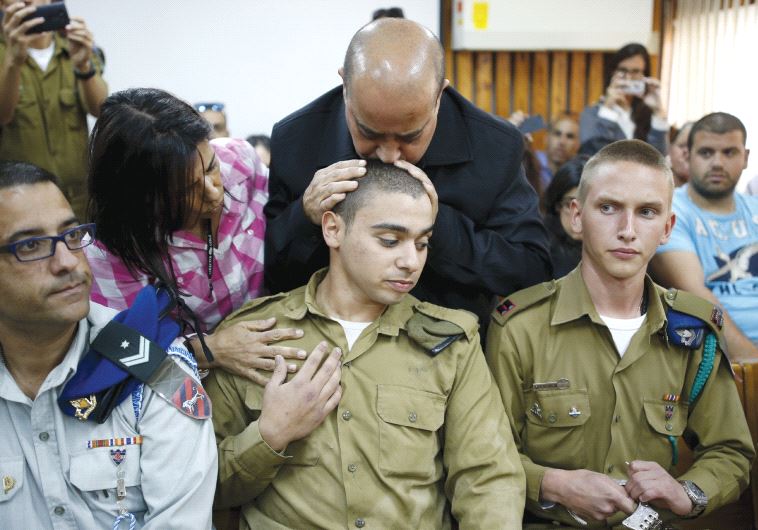Azaria and the ‘Helmand Incident’
It is an appropriate moment to recall the recent experience of another soldier in another army.
 THE FATHER OF IDF soldier Elor Azaria kisses his head during a remand hearing last MarchByAMICHAI COHEN, STUART COHENUpdated:
THE FATHER OF IDF soldier Elor Azaria kisses his head during a remand hearing last MarchByAMICHAI COHEN, STUART COHENUpdated: